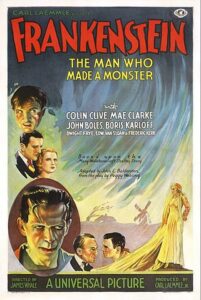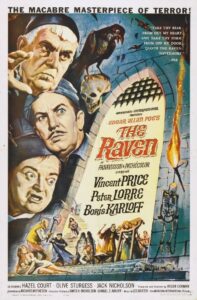September 2017 Ceatus Chronicles
Recent Posts
- Am I getting a good ROI for my Digital Marketing Dollars? 3 Ways to Check Your Digital Marketing ROI
- Should You Hire a Digital Marketing Agency with Experience Representing Healthcare Practices?
- CEATUS CEO Featured by Healio on the Pathway to Purchase for Eye Care and Treatment
- Does Your Website Need to Be ADA Compliant?
- CEATUS Shares Information on Pixel Trackers and HIPAA Violations
Categories
- abdominoplasty
- Articles & Publications
- Articles Published
- Bariatric Surgery
- Botox
- Breast Augmentation
- Breast Implants
- breast lift
- breast reconstruction
- breast reduction
- Bucks County Smiles
- Case Studies
- Cataract Surgery
- cataracts
- CEATUS Courses & Lectures
- CEATUS News
- CEATUS On The Road
- Chicago Plastic Surgeon
- Chicago Plastic Surgery
- Clients
- Content Marketing
- coolsculpting
- Cosmetic Dentistry
- Cosmetic Dentists
- cosmetic surgeon
- cosmetic surgeons
- Cosmetic Surgery
- dallas
- Dental Implants
- Dentist
- Dentistry
- Dentists
- dermatologist
- Digital Marketing Trends
- Dr James Lewis
- Dr. Humberto Palladino
- Dr. Vanessa Voge
- Dry Eye Institute
- drye eye treatment Philadelphia
- eye care
- eyelid lift
- Eyelid Surgery
- Facelift
- Facial Plastic Surgery
- fraxel
- Gastroenterology
- glaucoma treatment
- Greenhich Smartlipo
- Image
- Johannesburg LASIK
- LASIK
- LASIK Cost
- Lead Generation
- Liposuction
- Newsletters
- Ophthalmologist
- Ophthalmology
- Pay Per Click (PPC)
- plastic surgeon
- Plastic Surgeons
- Plastic Surgery
- Practice and Business Management
- Reviews & Reputation
- Search Engine Optimization
- Social Media Marketing
- Surgeons
- Uncategorized
- Website Design
- Website Management
Archives
- May 2024
- December 2023
- October 2023
- August 2023
- July 2023
- March 2023
- November 2022
- September 2022
- August 2022
- July 2022
- November 2021
- September 2021
- August 2021
- June 2021
- May 2021
- April 2021
- March 2021
- February 2021
- January 2021
- November 2020
- October 2020
- September 2020
- August 2020
- July 2020
- March 2020
- February 2020
- August 2019
- July 2019
- June 2019
- April 2019
- March 2019
- February 2019
- January 2019
- December 2018
- November 2018
- October 2018
- September 2018
- August 2018
- July 2018
- June 2018
- May 2018
- April 2018
- March 2018
- February 2018
- January 2018
- December 2017
- November 2017
- October 2017
- September 2017
- August 2017
- July 2017
- June 2017
- May 2017
- April 2017
- March 2017
- February 2017
- January 2017
- December 2016
- November 2016
- October 2016
- September 2016
- August 2016
- July 2016
- June 2016
- May 2016
- April 2016
- March 2016
- February 2016
- January 2016
- December 2015
- November 2015
- October 2015
- September 2015
- August 2015
- July 2015
- June 2015
- May 2015
- April 2015
- March 2015
- February 2015
- January 2015
- December 2014
- November 2014
- October 2014
- September 2014
- August 2014
- July 2014
- June 2014
- May 2014
- April 2014
- March 2014
- February 2014
- January 2014
- December 2013
- November 2013
- October 2013
- September 2013
- August 2013
- July 2013
- June 2013
- May 2013
- April 2013
- March 2013
- February 2013
- January 2013
- December 2012
- November 2012
- October 2012
- September 2012
- August 2012
- July 2012
- June 2012
- May 2012
- April 2012
- March 2012
- February 2012
- January 2012
- December 2011
- November 2011
A Disturbance in the Force!
Google’s HTTPS update announcement has practices asking if their website is in danger

A recent communication from Google suggested that there is an HTTPS-related update for users of the Chrome browser (owned by Google). Chrome is one of about seven or eight browsers popular among Internet surfers. Other popular browsers include Firefox, Internet Explorer, Safari, etc. According to Google’s communication, a small warning will appear in the Chrome browser address bar when a website user starts to type a message into a contact form on a non-HTTPS website. The image below shows how this warning will appear.

As with all Google announcements, this one has posed many questions but provided few answers. Below is a guide to navigating this latest Google update.
Should You Convert Your Practice Website to HTTPS?
HTTPS was designed to protect (through encryption) personal and financial data that is stored on or drawn from website databases whereby the private data is used for transactions. These systems are typically used for websites where consumers log in, such as large e-commerce and financial institution sites, as well as for other companies that regularly store secure information in their website databases.
We sometimes get the question, “Do I need HTTPS for my practice website?” Practice website databases rarely store practice or patient financial or personal information. Practice websites typically only store and present/display files intended to be viewed by the public, such as text, graphics, pictures and video files.
Bottom Line: In general, HTTPS encryption is not needed for most practice websites.
HTTPS and HIPAA
We have also been asked the question, “Is it true that moving my website to an HTTPS server will make my email completely secure?” The answer is an unequivocal NO! A completely secure email chain only occurs if both the sender’s and receiver’s email is secure, i.e. if both the practice AND the patient log into a secure system to send and read the email (think banking or insurance).
Bottom Line: Simply put, hosting a website on an HTTPS server does not/cannot create a secure email system. However, having your website contact forms, and data captured from them, hosted on a secure server is a good idea, which is why we have been doing this for our Ceatus clients for many years.
Does This Affect SEO?
There has been some talk about a connection between HTTPS and the Google ranking algorithm. Of course, we monitor all search engine activities very closely and while Google has stated this is one of the hundreds of ranking factors, there has been no evidence to demonstrate that HTTPS sites outperform non-HTTPS sites in the search results. Google uses more than 200 different signals, both on and off the practice website, to determine website ranking.
Bottom Line: At this time, HTTPS is not among the wide variety of variables important for obtaining higher rankings. The key variables continue to include unique content, links, coding, citations, social media engagement, reviews, etc.
What About the Future?
There are circumstances in which HTTPS websites are either required or requested, which is why Ceatus has always offered HTTPS server hosting to our clients. Unlike most Digital Marketing companies, Ceatus has its own internal IT and software development departments. These teams of experienced systems and programming experts have developed the HTTPS systems that we use to protect data on our own encrypted servers. We utilize these servers to store the private data entrusted to us by our own employees and clients. Suffice it to say, we are experts in this technology.
Bottom Line: While as of this moment, not having HTTPS status is not detrimental to the Digital strategy of the average practice website, conversion to HTTPS may be something to consider as Google continues to refine its algorithm and integrates this factor with other variables such as website, browser and search features. Stay tuned and, as always, we will keep you updated as changes to Google’s algorithm occur and best practices evolve.
What If I Want to Convert Now?
For those who would like to proactively convert their website to HTTPS, we are offering a discounted package through November 30, 2017. Contact us for pricing and mention “Ceatus Newsletter.”
Internet Tip of the Month
Stop Promoting and Start Engaging
 Many practices believe, erroneously, that social media is primarily a way to promote specials and procedures. This approach could damage both the practice’s social media strategy and its SEO.
Many practices believe, erroneously, that social media is primarily a way to promote specials and procedures. This approach could damage both the practice’s social media strategy and its SEO.
According to Facebook (our staff met directly with Facebook executives), the 80/20 rule applies. Specifically, less than 20% of posts should be used for promotion, while 80% or more should be used to prompt engagement. Engaging posts build relationships with your current audience and expand your reach for future social success, and this engagement sends signals to the search engines that are used to determine your website rankings.
All (promotion) is not lost, however. Once you get your followers engaging with your Facebook, you can then mix in effective promotion. This strategy can become a big money maker for your practice.
Ask the experts
Q: How do “social signals” impact my search engine rankings?
How? The Google algorithm now evaluates the interactivity and engagement of visitors with your online presence. So while there is no direct correlation between the number of social posts and your search rankings, there is a relationship between the engagement your posts receive and your rankings on Google, Bing and Yahoo.
Bottom Line: Make sure your posts are engaging rather than promotional.
Questions about your Social Media Strategy? Call us today at 858-454-5505 or email us at contactceatus@ceatus.com.
Events
Maximize Your Internet Strategy
Come by the Ceatus booth for a FREE website evaluation!
AAID

San Diego, CA
October 12-14, 2017
Booth 621
Looking to heat up your Digital Marketing strategy? Visit the Ceatus team at Booth 621 for a FREE Digital Marketing Evaluation!
ADMC

Atlanta, Georgia
October 17-18, 2017
Booth 3
Give your Internet strategy a smile makeover. Visit our booth to learn how to increase your conversion and start bringing new patients to your door!
AAO

New Orleans, Louisiana
November 11-14, 2017
Booth 949
Is your Digital Marketing Strategy out of FOCUS? Come visit Ceatus at this year’s AAO conference (booth #949) and see how we can help you grow your practice.
Also, Ceatus CEO David Evans, PhD, will be leading a discussion focusing on effective Internet Marketing and reviews strategies and how they affect your practice’s success. So don’t miss out!
“Effective Internet Marketing for Practice Growth”
Monday, November 13
11:30am-12:30pm
Room 292
“Reviews Equal Revenue”
Monday, November 13
2:00pm-3:00pm
Room 295
GNYDM

New York, New York
November 26-29, 2017
Booth 4414
See how you can grow your practice by visiting Ceatus at booth 4414. We look forward to increasing your conversion rate and bringing new patients to your door!
Not attending any of these shows? Give us a call (858-454-5505) for a FREE Digital Strategy Evaluation!

Watch At Your Own Risk!
Cult Classic Horror Films that still put the “Fright” in Fright Night!
Creature from the Black Lagoon (1954)
Scientists are alerted of a mysterious animal lurking in the Amazon. To study and uncover the secrets of this mysterious creature they must brave the perilous South American jungle. All the while the dangerous beast draws near. Be afraid, be VERY AFRAID!
 The Birds (1963)
The Birds (1963)
The quaint and sleepy town of Bodega Bay, CA becomes terrorized by violent birds in this famous Hitchcock thriller. A cult classic that weaves good old-fashioned suspense and horror into a stunning and elaborate plot. You’ll never look at birds the same!
 Frankenstein (1931)
Frankenstein (1931)
An obsessed scientist, Dr. Henry Frankenstein, attempts to make a creature of his own devices with body parts of the deceased. Frankenstein succeeds in bringing his creation to life and, in a fit of confusion and trauma, it escapes to torment and wreak havoc in the neighboring countryside. “It’s Alive! It’s Alive!” Dr. Frankenstein cries, in one of the most iconic scenes in cinema history.
The Mummy (1932)
A group of British archeologists stumble upon mummified remains of an Egyptian prince, Imhotep, and a legendary scroll that seems to have mysterious powers. When one of the archeologists recites the scroll aloud, the mummy comes to life and quickly escapes. Years later, Imhotep, disguised as a wealthy man, returns to Egypt in search of his lost love who he thinks has been reincarnated into the beautiful Helen Grosvenor. Love and intrigue!
Dracula (1931)
With dashing good looks, a castle and refined clothing, one could say Dracula is quite the charmer. But considering his penchant for luring beautiful and unsuspecting women in to his lair to suck their blood and turn them into vampires, one could also say he doesn’t have the best intentions. When he sets his sights on a beautiful daughter of a prominent doctor, vampire hunter Van Helsing is brought in to the stop the count’s bloodlust.
 The Raven (1963)
The Raven (1963)
Edgar Allen Poe’s famous poem comes to life in this tongue-in-cheek ‘60s film adaptation. Sorcerer Erasmus Craven has been mourning the death of his wife Lenore, when he is visited by a raven. He soon discovers that this raven is none other than his wizard apprentice, Dr. Bedlo. Bedlo explains that an evil doctor, Dr. Scarabus, turned him into a raven and that he may have seen Craven’s wife’s ghost walking the halls of Dr. Scarabus’ castle. The two team up to exact revenge and to reunite Craven with his love. Revenge is a dish best served cold.
House on Haunted Hill (1959)
Enter if you dare! Rich oddball Frederick Loren has a proposal for five guests to come to his haunted mansion. If they survive for a night they will receive $10,000 each. But what he doesn’t know is that two of the guests are Loren’s estranged wife and her secret lover — with plans of murdering Loren! Who’s scaring who, in this cat and mouse game?
Tarantula (1955)
A group of desert scientists try to stop the King Kong of spiders from taking over the town. Spiders… Need we say more?


